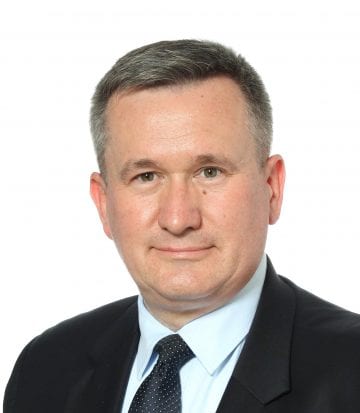Towards the true Balticness

Grzegorz M. Poznański,
Director General,
Permanent Secretariat of the Council of the Baltic Sea States,
Stockholm, Sweden
Established in 1992, the Council of the Baltic Sea States (CBSS – www.cbss.org) is an intergovernmental political forum for cooperation in the Baltic Sea region. Our work is guided by three long-term priorities: regional identity, a sustainable and prosperous region, and a safe and secure region. “Building cooperation and trust” is our motto and the way we operate.
Working closely with other regional organizations and platforms – such as Baltic Sea Parliamentary Conference, EU Strategy for the Baltic Sea Region, Northern Dimension Partnerships, HELCOM, VASAB, CPMR-BSR, BSSSC, UBC and many others – to achieve the goals of a region that develops in a sustainable and innovative way, builds resilience of its societies and economies caused by climate change and other crises such as the recent COVID pandemics. All this can only be achieved if we build a proper sense of regional identity or “Balticness” at different levels – political, social, economic and local.
The very term “Baltic identity” is understood in many ways, sometimes causing confusion. If it is understood that we should all be the same (identical), then of course we fall into a dead-end trap. We are different in our Baltic Sea region. We had different histories, cultures, languages, and despite globalization, we have different economies and even education systems. We often look at supposedly obvious facts from different perspectives, understanding their meaning in different ways. Therefore, in the CBSS, we continue to help our member states learn about the history, culture, and heritage of the Baltic Sea region. Because only through such dialogue can we bring nations closer together.
The real meaning of our Baltic regional identity, “Balticness” for short, has been mastered over 30 years of regional cooperation. The true Baltic spirit allows us to be practical in working towards achieving our ideals. Our Balticness also helps us to be innovative not only in terms of technology and economics, but also in creating new organizations and cooperation platforms. The power of the Baltic networking skills cannot be overstated.
But our Baltic character is not only about being pragmatic and innovative, and effective cooperation in building cooperative networks. The real test is our approach to the most vulnerable groups in our societies: children (especially those at risk of violence), the elderly (and their desire to remain an active part of our societies), victims of human trafficking (often at risk of forced labour), economic and social exclusion). In our work at the CBSS, we pay special attention to these challenges with our specialized units and experts: the Children at Risk Unit (CAR) and the Task Force for Preventing Trafficking in Human Beings (TF-THB). Our Sustainable and Region Prosperity team is vigorously working on the Sustainable Working Life project as part of the CBSS Baltic Labour Forum, which aims to improve the employability and working life of older people.
But most importantly, we understand that the better world we are trying to build is for future generations. We strive to make the voice of future generations heard. We also promote the involvement of young people from the Baltic Sea region in discussions and – if possible – in decision-making processes. Through our Baltic Sea Youth Platform (BSYP) and the Baltic Sea Youth Dialogue (BSYD), we want their voice to be strong and meaningful. It is also the best school of building bridges and cooperation between different shores of the Baltic Sea. Representatives of young people from all CBSS countries – EU countries, Norway, Iceland, and Russia participate in the BSYP meetings. That is why we are investing in the Summer Baltic Sea Universities, the Baltic Sea Science Network and other educational projects – because it is important to embed the Baltic spirit in our education for the future. Through the “ChYResilience” project run by the CBSS Secretariat, we aim to enable children and young people to play an active role in contributing to social resilience and to remove barriers to their active involvement in prevention, preparedness, response and recovery. We are deeply convinced that one day children and young people will build further cooperation and trust and make our region even safer, more prosperous and sustainable. And in the coming decades, let’s take our Balticness to higher levels.
In the CBSS we say: “water connects us, but culture unites us”. Let me reformulate this sentence and say: Baltic Sea connects us, but Balticness unites us!
Expert article 2806
> Back to Baltic Rim Economies 4/2020
To receive the Baltic Rim Economies review free of charge, you may register to the mailing list.
The review is published 4-6 times a year.
